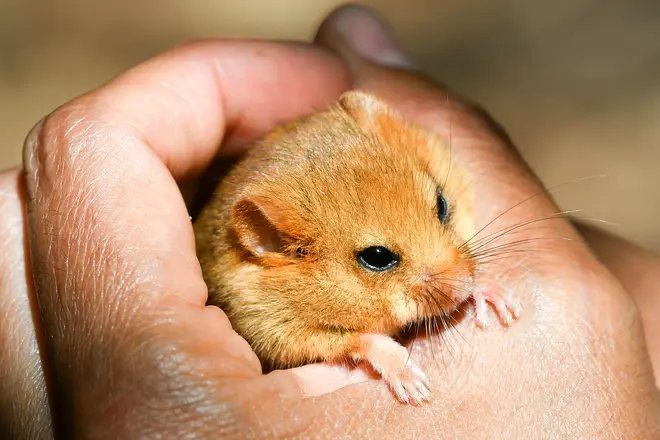
Matt Frei 10am - 12pm
4 September 2020, 21:55 | Updated: 4 September 2020, 22:24

Humans are solely responsible for almost every mammal extinction over the past 126,000 years, a study has found.
The research found the impact of humanity has caused 96% of past extinctions, with humans being a more significant factor than climate change.
Published in this week's edition of Science Advances, scientists also concluded that by the year 2100, a further 558 mammal species could be extinct.
However, the conclusions contrasted the views of other experts, who say major climatic changes associated with Ice Age cycles were the main cause of most prehistoric mammal extinctions.
But the study still accepted that the new pressures human-caused climate change bring still pose "a large risk for many species".
Watch: Ending industrial animal farming can prevent pandemics - animal rights activist
Watch: 'We shouldn't breed humans as they harm animals,' says vegan caller

How animal farming is unsustainable with animal rights activist
The study's co-author Daniele Silvestro said: "We find essentially no evidence for climate-driven extinctions during the past 126,000 years.
"Instead, we found that human impact explains 96% of all mammal extinctions during that time."
Mr Silvestro added: "However, current human-caused climate change is a novel phenomenon with different pressures, and together with fragmented habitats, poaching and other human-related threats, it poses a large risk for many species".
The research looked at 351 mammals that have become extinct since the beginning of the Late Pleistocene epoch, almost 12,000 years ago, including mammoths, sabre-toothed cats, and giant ground sloths.
Watch: Caller recounts violent story, brands animal rights activists 'terrorist'
Read more: Flocks of farm animals rescued during Storm Dennis

Heartbreaking video shows animals dead on the side of the road from Australian bushfires
Scientists working on the study also found that extinction rates in Australia, North America and Madagascar increased drastically following the arrival of humans.
They also discovered that past extinctions did not happen continuously and at a constant pace, but instead occurred in bursts.
However, the magnitude of human-driven extinctions globally has quickened, scientists warn.
Lead author Tobias Andermann, of the University of Gothenburg, said: "We can save hundreds if not thousands of species from extinction with more targeted and efficient conservation strategies.
"But in order to achieve this, we need to increase our collective awareness about the looming escalation of the biodiversity crisis and take action in combating this global emergency.
"Time is pressing. With every lost species, we irreversibly lose a unique portion of Earth's natural history."